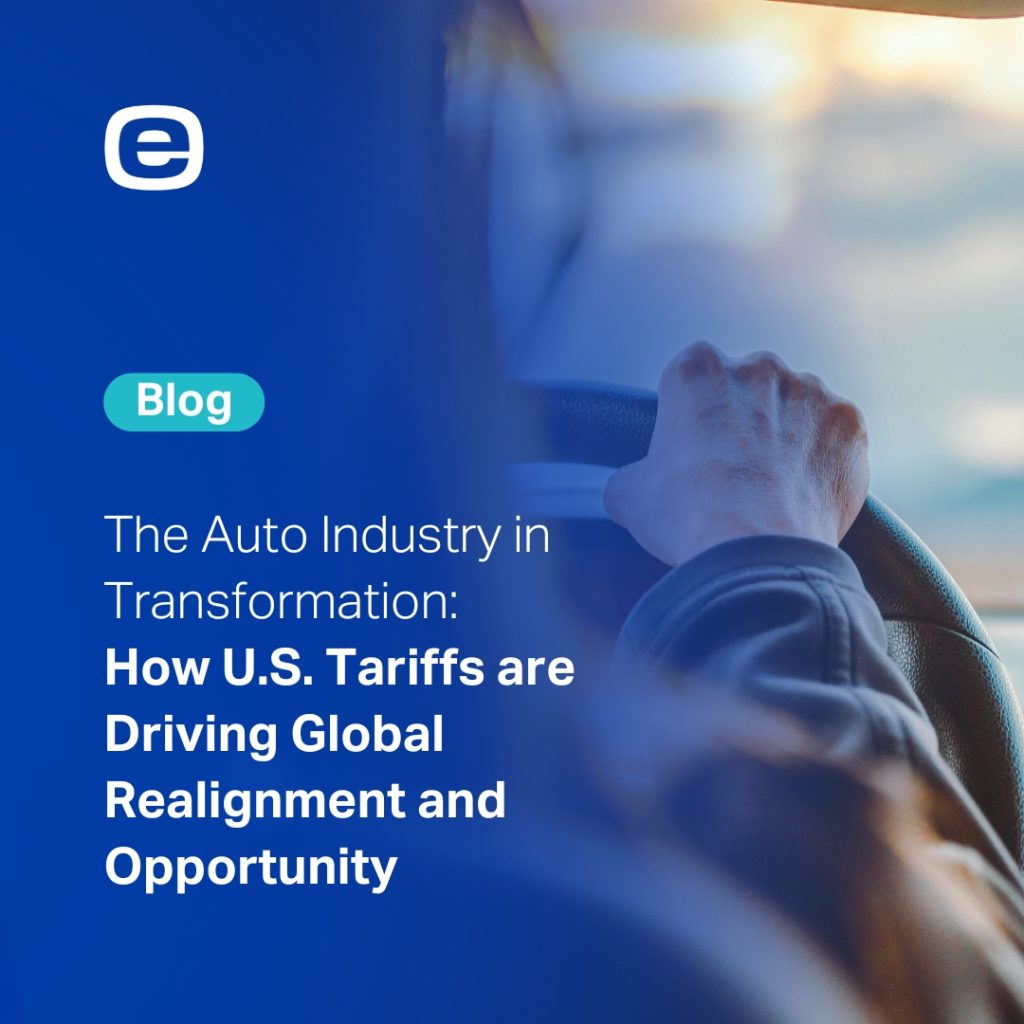6 June, 2025
THE AUTO INDUSTRY IN TRANSFORMATION: HOW U.S. TARIFFS ARE DRIVING GLOBAL REALIGNMENT AND OPPORTUNITY
The automotive sector is facing a moment of deep strategic reflection, triggered by the introduction of new U.S. tariffs on imported vehicles. While these measures have created waves of short-term uncertainty, they are also catalyzing a transformation in global production strategy. Leading automakers are responding not with retrenchment, but with recalibration—taking bold steps to future-proof their operations.
This process goes beyond cost-cutting or logistical tweaks. It involves a comprehensive reassessment of global supply chains, production hubs, and market access strategies. Flexibility is no longer optional—it’s a fundamental requirement. Companies that can swiftly adapt by diversifying suppliers, relocating production capacity closer to key markets, or leveraging free trade zones are positioning themselves ahead of the curve.
For many industry players, this has meant accelerating the decentralization of operations and building resilience into every layer of their supply network. It’s not just about reacting to tariffs, but about designing production ecosystems that are robust in the face of geopolitical shifts and regulatory changes.
Shifting Dynamics in Global Vehicle Availability
The ripple effects of production reconfiguration are already visible in regional vehicle markets. Manufacturers that once prioritized exports to the United States are now rechanneling volume toward Europe, Asia, and emerging markets. This redirection is not only improving availability but also spurring innovation in product design and market segmentation.
Consumers in these regions stand to benefit from a broader range of vehicles—often with features tailored more specifically to local preferences. At the same time, automakers are adapting their go-to-market strategies to reflect changes in regulation, infrastructure readiness, and economic outlook. Marketing efforts, pricing models, and after-sales services are all being recalibrated to align with the new supply realities.
Strategic Planning in a Volatile Global Context
Today’s automotive investments are increasingly guided by strategic foresight. Decisions about new factories, technological partnerships, and vehicle platforms are being driven by a desire to minimize risk and maximize responsiveness. As companies confront a world where market access can shift overnight, agility and localization are becoming core principles of industrial design.
One noticeable trend is the strengthening of regional alliances—within the EU, ASEAN, Mercosur, and other trade blocs. These partnerships are enabling more stable operations, as well as shared innovation in areas such as electrification, sustainability, and smart mobility.
The Role of Technology, Resilience—and Neklar
Amid these shifts, the technological transformation of the industry remains uninterrupted. Electrification, autonomous driving systems, and software-defined vehicles are redefining the very architecture of mobility. Materials science and advanced component integration are playing a critical role in enabling cleaner, lighter, and safer vehicles.
In this dynamic context, companies like Neklar are essential to the automotive industry’s evolution. Specializing in advanced thermal management systems and functional engineering solutions, Neklar helps manufacturers meet today’s technical challenges while preparing for the needs of tomorrow.
Their expertise supports greater modularity, energy efficiency, and compliance with emerging safety standards—empowering OEMs to deliver smarter, more sustainable vehicles across markets.
As the global automotive landscape continues to evolve, collaboration between automakers and innovation-driven partners like Neklar will be key to achieving a more resilient, flexible, and competitive industry worldwide.








